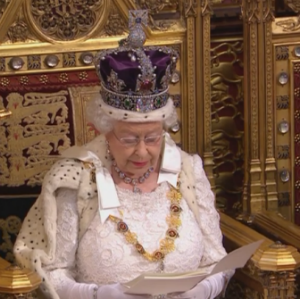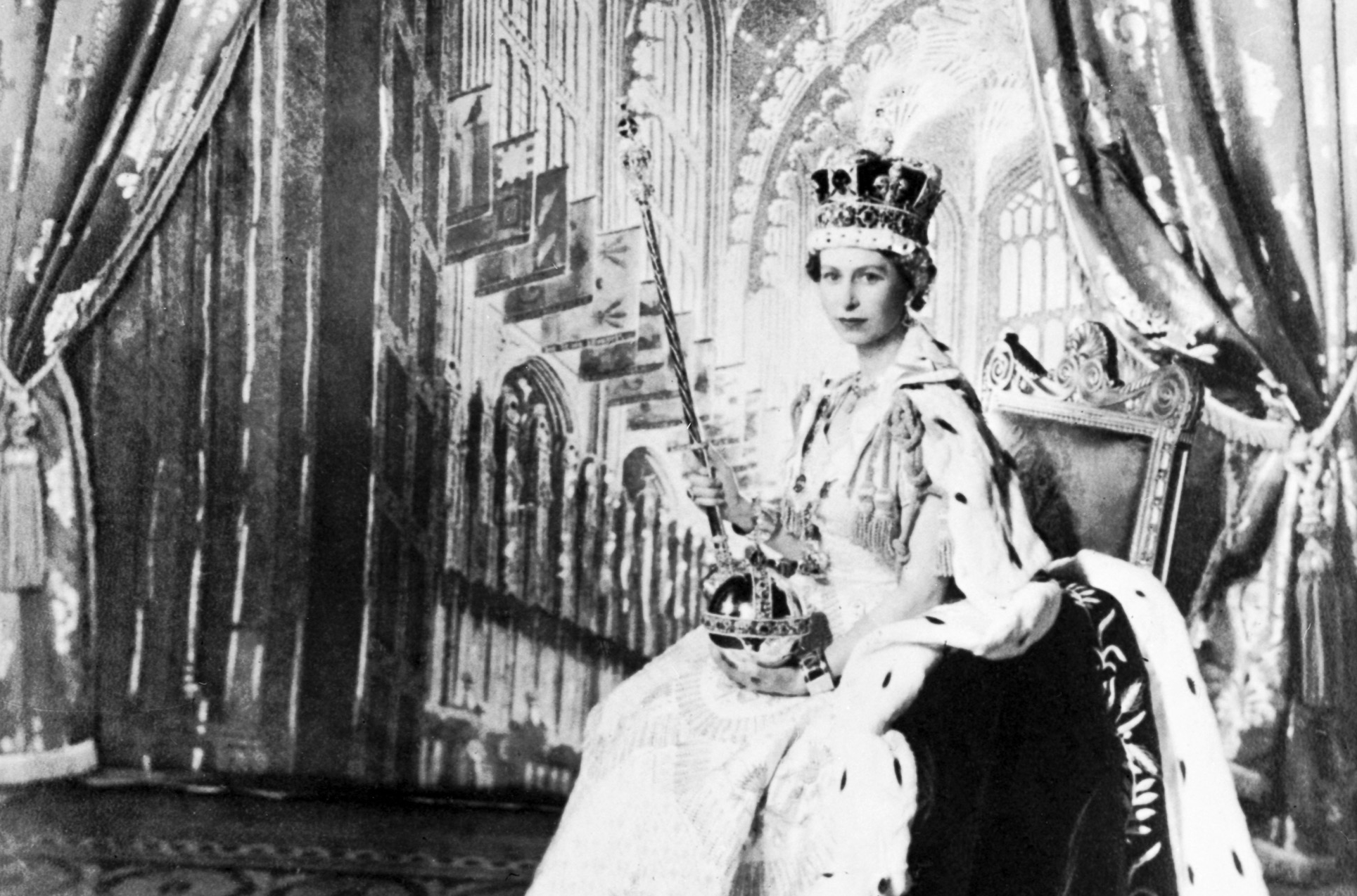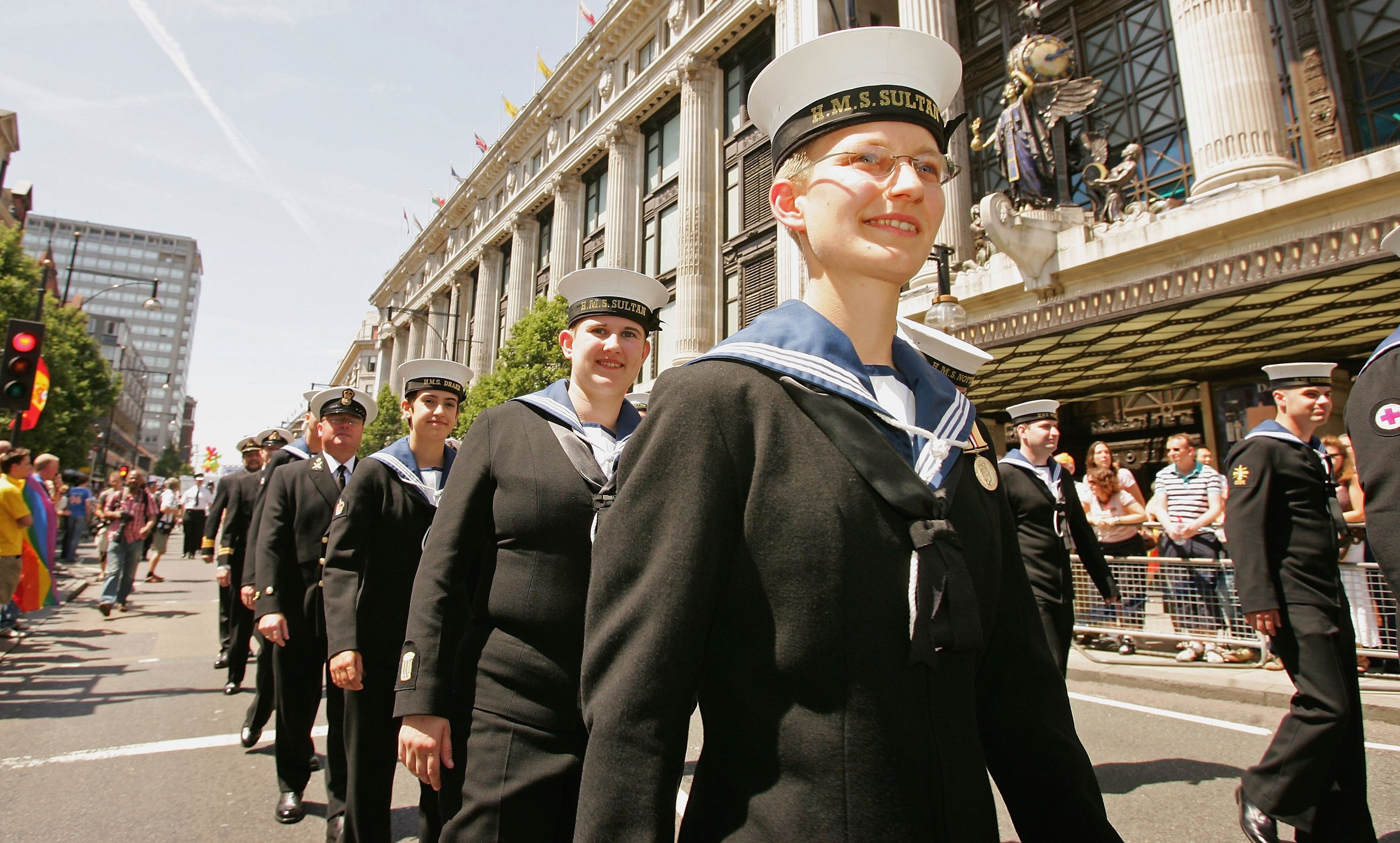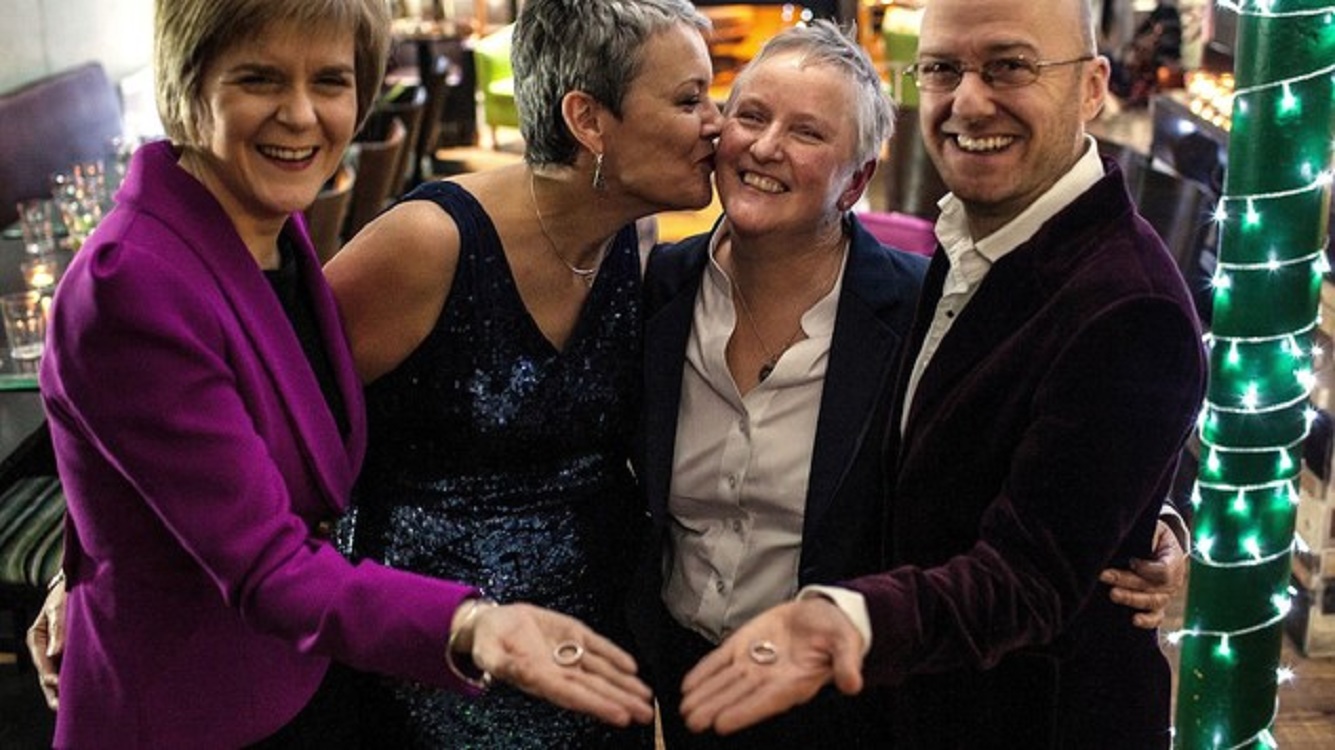The Queen turned 90 and here’s all the LGBT laws she signed

Today, Queen Elizabeth II turns 90 and to mark the occasion, PinkNews have taken a look at how LGBT laws have changed since she took the throne.
Having presided over six decades of British history, the Queen has seen twelve Prime Ministers serve under her, and has out-reigned her great-great-grandmother, Queen Victoria.

She has been on the throne for 64 years and two months.
When the Queen came to the throne, the UK had more pieces of anti-LGBT pieces of legislation on the statute book, while today, it is internationally recognised as having amongst the best LGBT rights legislation in the world.
While the only time the 90-year-old has commented publicly on LGBT people was when she welcomed civil partnerships in the beginning of the 2003/04 legislative session, she has signed a great deal of other pieces of legislation which have changed LGBT life in the UK
Below is a list of some of some of the key pieces of legislation which has changed LGBT life since Her Majesty took the throne on 6 February 1952.
Partial decriminalisation of homosexuality, England and Wales, 1967
On July 27 1967, after Parliament passed the Sexual Offences Act, gay people in England and Wales woke up in a brave new world – where gay sex was decriminalised. While an unequal age of consent would remain, and gay sex would remain illegal in Scotland until 1980, this was a huge step for equality in the UK.
Partial decriminalisation of homosexuality in Scotland, 1980
Through Section 80 of the Criminal Justice (Scotland) Act, in 1980, gay sex was decriminalised in Scotland.
Partial decriminalisation of homosexuality in Northern Ireland, 1982
Gay sex did not become legal in Northern Ireland until 1982. It would be several decades before the age of consent would be equalised for gay sex.
Age of consent lowered to 18
Under the Criminal Justice and Public Order Act 1994, the age of consent for gay sex in the UK was lowered to 18. Despite efforts by Tory MP Edwina Currie to introduce an amendment to equalise it, to 16, the amendment was defeated.
Human Rights Act 1998
After the Queen gave Royal Assent to the HRA in 1998, the European Convention on Human Rights was enshrined into British law. Although convictions were made prior to the HRA under the ECHR, Article 14 of the Human Rights Act, which affords protection from discrimination, has been used in many legal cases to argue for protection for LGBT people.
Government lifts ban on lesbian, gay and bisexual people serving in the armed forces, 2000
Although not an act of Parliament, following on from a ruling at the European Court of Human Rights, the British military began allowing gay, bisexual and lesbian people to serve openly in 2000.

Age of consent for gay sex equalised in England and Wales, 2001
The age of consent for gay sex was lowered to 16 in England, Scotland and Wales in 2000 under the Sexual Offences (Amendment) Act 2000, which took effect in 2001.
Northern Ireland followed suit in 2009.
Same-sex couples gain right to adopt
Through the Adoption and Children Act 2002, same-sex couples in England and Wales got the right to adopt in 2005. In Scotland couples got the right to adopt in 2009, and in Northern Ireland in 2013.
Section 28 repealed, 2003
The law which stated that schools in England and Wales “shall not intentionally promote homosexuality or publish material with the intention of promoting homosexuality”, was repealed in 2003.
Scotland’s equivalent, known as Section 2A, was repealed on 21 June 2000 and was one of the first acts taken by the newly reformed Scottish Parliament.
A proposal to introduce civil partnerships was included in the Queen’s speech in 2003
Following on from the mention, civil partnerships were granted under the Civil Partnership Act 2004. Civil Partnerships provided couples with almost identical rights regarding property, children, inheritance, and other rights.

The first civil partnerships took place on 5 December 2005.
Gender Recognition Act, 2004
The GRA allowed transgender people to legally change their gender. It took effect on 4 April 2005.
While widely regarded as a landmark piece of legislation for transgender people, the British Government is facing renewed calls to refresh the legislation, and keep laws for trans people in the UK up to date.
Discrimination based on sexual orientation or gender identity outlawed
By way of the Equality Act 2006, discrimination based on sexual orientation or gender identity were banned in the provision of goods, facilities, services, education and public functions.
Same-sex couples recognised as legal parents of children conceived through sperm or egg donation and IVF, 2008
Through the Human Fertilisation and Embryology Act 2008, lesbian couples can now be recognised as the parents of a child conceived through IVF.
Civil Partnerships begin to take place in religious venues
In 2011, legislation took effect meaning civil partnerships could take place in religious venues in England and Wales. Scotland did the same in 2014, but in Northern Ireland, civil partnerships remain banned in religious venues.
Historic gay sex offences expunged
Under the Protection of Freedoms Act 2012, gay people could apply to have any historic convictions for ‘gross indecency’ expunged.

A later House of Lords bill saw a statutory pardon given to Alan Turing for offences under Section 11 of the Criminal Law Amendment Act 1885 of which he was convicted.
Same-sex marriage legalised in England, Scotland and Wales, 2014
On 29 March 2014, same-sex couples in England and Wales were finally allowed to marry. After sometimes heated debates in both houses of Parliament in 2013, which included a peer coming out, the Marriage (Same Sex Couples) Act 2013 was passed.

Scotland followed shortly after with the equivalent Marriage and Civil Partnership (Scotland) Act 2014, and the first couples married on Hogmanay (December 31) 2014. The Scottish Act differs as it includes provisions to allow humanist weddings, and did not include the controversial ‘trans spousal veto’, as did the England and Wales legislation.
What is still to change
Same-sex marriage remains illegal in Northern Ireland. As marriage is a devolved issue, changing the law will require a bill to passed in the Northern Irish Assembly or a ruling by the UK Supreme Court or alternatively the European Court of Human Rights.
There have been calls for the English and Welsh equal marriage bill to be amended, with the removal of the spousal veto seen as a major priority.
Many campaigners believe that the legislation surrounding transgender and other gender related issues need to be reformed. Parliament is currently holding an inquiry into the issue. This will consider the case for recognition of non-gendered or ‘Gender X’ people. In the upcoming Scottish election, most political parties have said they will bring forward new gender identity laws.
The Queen remains the Head the Commonwealth, where 42 countries have laws against being gay.
Over the past nearly 64 years, the Queen has seen some amazing changes for the LGBT community in the UK, but there is still more to come.

